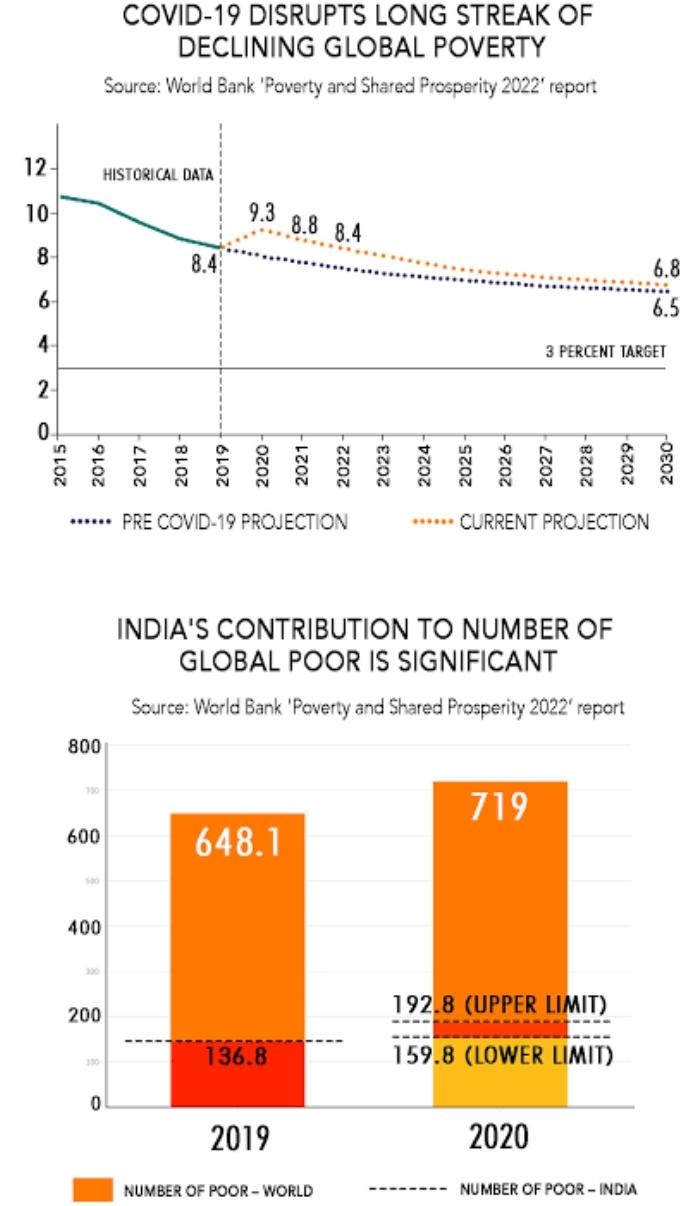The COVID-19 pandemic has significantly increased global poverty rates, reversing years of progress in poverty reduction. The World Bank estimates the pandemic could have pushed an additional 97 million people into extreme poverty, defined as living on less than $1.90 a day. This surge has been particularly severe in developing countries where economic vulnerabilities were already high.The pandemic's economic disruptions have led to massive job losses, particularly in sectors like tourism, hospitality, and retail, which employ a large number of low-income individuals. Informal workers, who lack social protections and access to healthcare, have been disproportionately affected. Women and young people have also faced greater economic hardships, exacerbating existing inequalities.To address the rising poverty rates, comprehensive recovery strategies are essential. These strategies should include strengthening social safety nets to provide immediate relief to those most affected. Inclusive economic policies that promote job creation and support small and medium-sized enterprises (SMEs) are crucial for long-term recovery. Additionally, significant investments in healthcare and education are necessary to build resilience against future shocks. Emphasizing sustainable development and ensuring equitable access to resources can help create a more robust and inclusive global economy post-pandemic.
Effect of covid 19 on poverty
Posted 2024-06-15 09:40:26

Record
Recording 00:00
Commenting has been turned off for this post.
Categories
- Sustainability
- Home
- Wellness
- Theater
- Sports
- Shopping
- Religion
- Party
- Other
- Networking
- Music
- Literature
- Art
- Health
- Gardening
- Games
- Food
- Fitness
- Film
- Drinks
- Dance
- Crafts
- Causes
Read More
The Physics Behind Black Holes
Black holes are regions in space where gravity is so strong that nothing, not even light, can...
this message is for everyone
everybody lets keep our country clean and also good in population
EX:- pick up the trash
...
Democracy
1. *Protection from abuse of power*: Rights safeguard citizens from government overreach...
Independence day 🫡
Unity in Diversity
As we approach Independence Day, it is essential to recognize the...
Newspaper bag
Don't waste papers and save trees
×
Your daily access limit has been reached. Please try again tomorrow.
© 2025 GoSharpener Pvt.Ltd.
Refund and Cancellation policy - We do not entertain any refunds and cancellation
Refund and Cancellation policy - We do not entertain any refunds and cancellation
